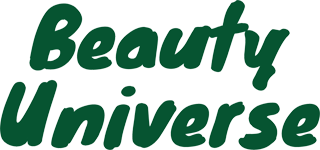Understanding the Risks Associated with Nail Salons
Nail salons are popular destinations for beauty treatments, but concerns about hygiene and health risks have led many to wonder whether diseases, including HIV, can spread in these environments. It’s essential to understand the potential risks involved and how to protect yourself while enjoying nail care services.
The Transmission of Infectious Diseases
Infectious diseases can spread in nail salons primarily through unsanitary practices. While HIV is not typically transmitted through nail services, other infections can pose significant risks.
- HIV Transmission: HIV is primarily transmitted through blood, sexual contact, or sharing needles. The risk of contracting HIV from a nail salon is extremely low unless there are shared instruments that have come into contact with infected blood. Proper sterilization practices significantly reduce this risk.
Common Health Risks in Nail Salons
Bacterial and Fungal Infections
While the risk of HIV transmission is low, nail salons can be breeding grounds for bacterial and fungal infections if proper hygiene practices are not followed.
- Bacterial Infections: Cuts or abrasions on the skin can lead to bacterial infections if tools are not properly sanitized. Symptoms may include redness, swelling, and pus.
- Fungal Infections: Fungal infections such as athlete’s foot or nail fungus can also be contracted in unclean environments. These infections thrive in warm, moist conditions often found in salons.
Importance of Hygiene Practices
Choosing a Reputable Salon
To minimize health risks when visiting a nail salon, it’s crucial to choose a reputable establishment that prioritizes hygiene and safety.
- Sterilization of Tools: Ensure that the salon uses sterilized tools for each client. Look for establishments that use autoclaves or UV sterilizers to disinfect their equipment.
- Clean Environment: A clean salon environment is essential. Check for cleanliness in both the workstations and the overall salon space. Staff should also maintain proper hygiene by washing their hands frequently.
What to Look For in a Safe Nail Salon
Safety Certifications and Practices
When selecting a nail salon, consider the following safety certifications and practices:
- Licensing: Ensure that the salon is licensed and follows local health regulations. This indicates that they adhere to safety standards set by health authorities.
- Disposable Items: Reputable salons often use disposable items, such as files and buffers, for each client to prevent cross-contamination.
Staying Safe While Enjoying Nail Services
While the risk of contracting HIV from nail salons is minimal, other infections can pose significant health risks if proper hygiene practices are not followed. By choosing reputable salons that prioritize cleanliness and safety, you can enjoy your nail care services without undue concern. Always be proactive about your health by asking questions about hygiene practices before receiving any treatments. T


